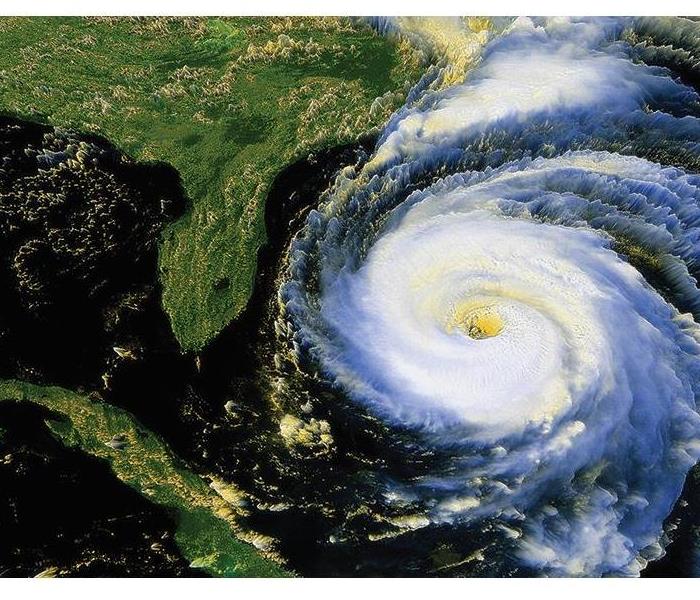Prepare for the financial impact of natural disasters
10/22/2019 (Permalink)
The fury of Mother Nature's wrath is displayed in vivid color during stormy times of year, including hurricane season. And even though the Atlantic hurricane season is winding down being aware of what can happen it always important. It seems no area of the planet is safe from such furor. In September 2018, Hurricane Florence battered the southeastern coast of the United States while Typhoon Mangkhut hit Hong Kong. Just a few months earlier, California saw devastating wild fires, and in August torrential rain flooded many areas of Taiwan. After the flood waters recede and the rain or smoke has passed, people affected by storms must face the financial ramifications. Whether storms touch down nearby or overseas, the globalized economy means the financial fallout from natural disasters can be felt near and wide. The National Centers for Environmental Information estimates that hurricanes cost an average of $21.8 billion per event in damages for the United States. Since 1980, when data started to be collected, NCEI indicates hurricanes (tropical cyclones), drought, flooding, wildfires, freezes, and winter storms tend to be the most costly events. ItÕs easy to underestimate the scope of the financial burdens caused by natural disasters. Here are a few ways to protect one's financial interests in advance of natural disasters.
- Experts at Property Casualty Insurers Association of America advise consumers to review and update their insurance policies regularly. Many homeowners are underinsured for natural disasters, particularly for flooding or earthquakes, which are not included in most policies.
- Adjust insurance shortfalls based on what insurers provide and the type of weather that tends to affect the area in which you live.
- Policies should reimburse for hotel rooms or meals out if a home is uninhabitable after a disaster. In a Consumer Reports survey of people who experienced property damage after a hurricane, 5 percent said they had to stay elsewhere, while 42 percent needed to relocate temporarily after damages from wildfires.
- Remove valuables and store them in a bank safety deposit box or another location that's outside the path of the storm. Theft, vandalism and looting can occur after storms.
- Have a backup employment plan and savings strategy if storms come through regularly. It is not uncommon for local businesses to shut down for some time to recover. This can mean temporary or permanent loss of employment.
- Recognize your portfolio may suffer as commodity prices and stocks take a hit if regions are decimated by natural disasters. Think ahead in regard to how your investments may be affected and make changes accordingly to mitigate the financial damage. Storms cause structural and economic damage when they roll through. Be prepared to protect your financial interests.





 24/7 Emergency Service
24/7 Emergency Service
